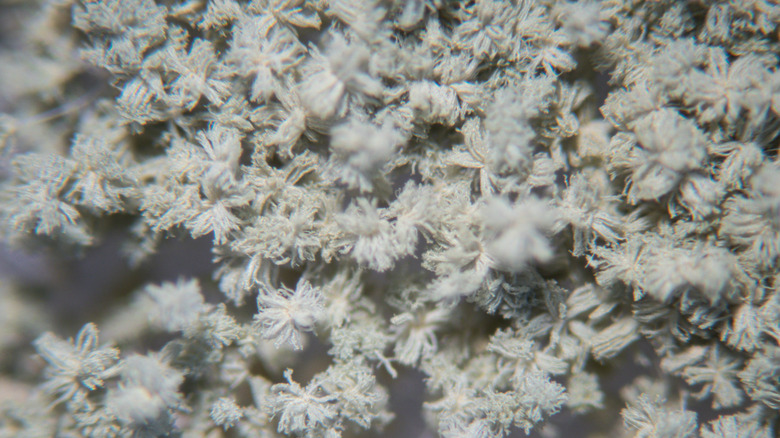How Mold Could Change The Coffee Industry Forever
Americans love their coffee, with many early risers needing to brew a cup first thing in the morning before they can fully function or kick-start their workday. According to a survey from the National Coffee Association, seven in 10 Americans drink coffee every week, while 62% drink it every day. The average coffee drinker in the U.S. downs three cups of joe per day.
This high demand for coffee is met by an industry featuring everything from massive chains like Starbucks and Dunkin' to convenience stores, family-run small business coffee shops, and grocery stores. Nearly 60% of the coffee served in the U.S. is considered 'gourmet,' meaning that it is brewed from premium beans. Meanwhile, the National Coffee Association notes that consumption of traditional coffee has declined by 10%.
New coffee drinking trends once unheard of are becoming increasingly popular such as cold brew and nitro, with one in five Americans under 40 saying they consume at least one per week. And now a type of mold being used in processing coffee has the potential to change the coffee industry forever (per The Seattle Times).
The 'perks' of processing coffee with koji
The mold is called koji, which is used during the fermentation stage of making coffee. Koji has long been utilized in Japan in making products like sake and miso (via Perfect Daily Grind). Its proponents contend that koji has the flavor-enhancing ability to improve upon the average cup of coffee.
This unique ingredient can add sweetness and boost the grade of coffee to another level, say producers who have adopted koji in their products (per The Seattle Times). The appeal of the mold beyond these impacts is that its addition can improve the character of the beans. It has the ancillary benefit of providing farmers with more sustainable profits, according to Forbes.
Finland's One Day Coffee Co. demonstrated the koji-fermented coffee process last October at the World Barista Championship in Milan, brewing the beans in public for the first time. The demo generated significant interest among people in the coffee industry who were intrigued by the process of a mold enhancing the quality of a coffee bean. Essentially, when added to coffee beans, the enzymes in koji break down starches into sugars that are incorporated during fermentation and cultivate new flavors.
As the concept catches on, more coffee farms worldwide are starting to use the koji method and koji coffee is appearing on more menus internationally. If you're eager to try it, just be prepared for your wallet to take a hit. Koji coffee costs nearly twice as much per pound as traditional coffee.

